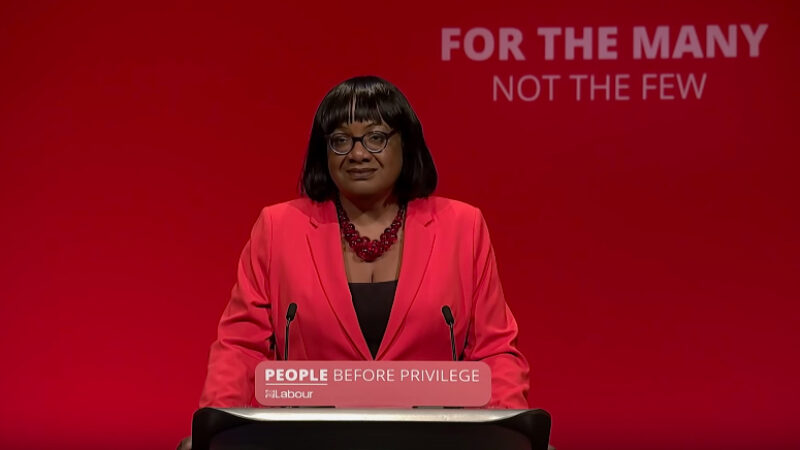
Labour is set to announce that it would expand 18 ‘violence reduction units’ in the police forces across the country tasked with tackling the highest rates of gang-related violent crime.
Diane Abbott and Richard Burgon will unveil plans to offer these existing VRUs an average of 20 additional officers each. The extra staff will be drawn from Labour’s existing commitment to boost police numbers.
Labour is basing its strategy on the Glasgow model of violence reduction, which has seen violent crimes in the city reduce by around 40% over the last decade and homicides reduce to their lowest level since 1976.
Commenting ahead of the announcement at an anti-knife crime event in Hackney, the Shadow Home Secretary said: “Tory cuts to the police have made our communities less safe.
“You can’t have safety and security on the cheap and you can’t believe a word that Boris Johnson says on policing. Labour will fully resource our police forces after Tory cuts and our focus on violence reduction units will make a public health approach to tackling crime a reality.”
The VRU approach is often described as a ‘public health’ one, suggesting that violent behaviour spreads between people. American epidemiologist Gary Slutkin promoted this theory when returning to Chicago after working in Somalia.
In a 2018 Guardian article, Slutkin explained: “Flu causes more flu, colds cause more colds, and violence causes more violence.” He described a focus on enforcement as “fundamentally a misunderstanding of the human”.
Labour’s investment in violence reduction units would be paired with increased numbers of uniformed police officers, civilian specialists and experts, police in national agencies, back-up admin staff and police community support officers.
The party has committed to matching the additional government resources already announced for policing. It has also pledged to re-establish neighbourhood policing and recruit 2,000 more frontline officers than have been planned for by the Conservatives.
Labour’s justice spokesperson, Richard Burgon, said: “Under the Tories reoffending rates are far too high… Labour will prioritise reducing the number of victims of crime and tackling the huge social and economic costs of offending.”
Revealing further proposals for a fresh approach to tackling violent crime, Burgon said: “Our criminal justice innovation fund will help local experts invest in schemes that work best to tackle reoffending in their areas.”
Labour wants to pilot innovations, supported by a £20m annual ‘justice innovation fund’ for police and crime commissioners, and help local criminal justice boards to develop and trial the best practice ways of reducing re-offending.
The fund will boost a “whole-systems” approach, which will see public bodies work together in a coordinated way to reduce offending and improve outcomes for victims. It will allow local criminal justice boards or PCCs in each area to bid, on average, for £465,116.
Violent crime has risen across the country in recent years. London recorded the highest rate of knife crime at 169 offences in 2018/19. Knife crime has also risen sharply in other areas of the country such as the West Midlands, where knife crime has risen by 103% since 2014.
Reoffending rates are also high. A 2019 Prison Reform Trust briefing showed that reoffending rates stand at around 50%. The figure is higher, at 65%, for those released following a short prison sentence. The cost of short-term prisoners re-offending alone is £7-10bn per year, and £18bn overall.




More from LabourList
‘Ukraine is Europe’s frontier – and Labour must stay resolute in its defence’
Vast majority of Labour members back defence spending boost and NATO membership – poll
‘Bold action, not piecemeal fixes, is the answer to Britain’s housing shortage’